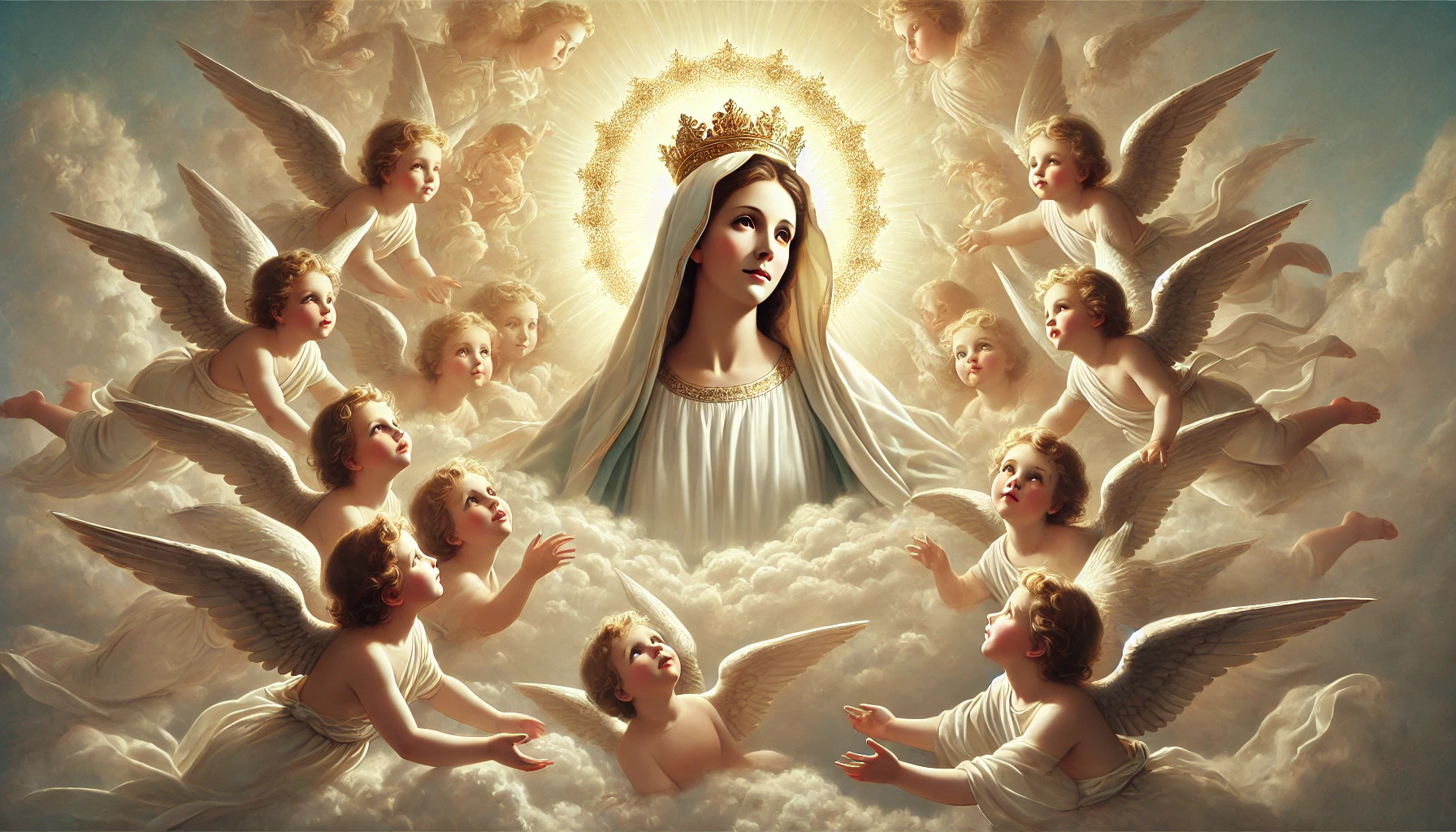
The Assumption of the Blessed Virgin Mary: A Glorious Journey into Heaven
As we approach the feast of the Assumption of the Blessed Virgin Mary on August 15th, we are invited to reflect on one of the most profound mysteries of our faith. The Assumption, a dogma solemnly defined by Pope Pius XII in 1950, celebrates the belief that Mary, the Mother of God, was taken body and soul into heavenly glory at the end of her earthly life. This feast is not just a celebration of Mary’s unique role in salvation history, but also a powerful reminder of our own call to eternal life.
Scriptural and Theological Foundations
While the Assumption is not explicitly described in Scripture, it is deeply rooted in biblical theology and the Church's tradition. The early Christians recognized Mary's unique place as the Mother of Jesus, the New Eve, and the Ark of the New Covenant.
Mary as the Mother of God (Theotokos):
The title Theotokos, which means "God-bearer" or "Mother of God," was affirmed at the Council of Ephesus in 431 AD, and is rooted in Scripture. In the Gospel of Luke, the angel Gabriel greets Mary with the words, "Hail, full of grace, the Lord is with you!" (Luke 1:28), and later Elizabeth, filled with the Holy Spirit, exclaims, "And why is this granted to me that the mother of my Lord should come to me?" (Luke 1:43). These verses highlight Mary's role as the mother of Jesus, who is both fully divine and fully human, thus making her the Mother of God.
In the Book of Revelation, Mary is often associated with the "woman clothed with the sun" (Revelation 12:1), who gives birth to a male child destined to rule all nations. This imagery has been interpreted by many Church Fathers and theologians as pointing to Mary, the Mother of the Redeemer, who shares in His victory over sin and death.
Teachings of the Church
Pope Pius XII, in his Apostolic Constitution Munificentissimus Deus, formally defined the dogma of the Assumption, declaring that "the Immaculate Mother of God, the ever-Virgin Mary, having completed the course of her earthly life, was assumed body and soul into heavenly glory." This declaration was not an innovation but a confirmation of a belief held by Christians for centuries.
The Catechism of the Catholic Church (CCC) teaches that the Assumption of Mary is a sign of the ultimate destiny of all the faithful. In CCC 966, it states: "The Immaculate Virgin, preserved free from all stain of original sin, when the course of her earthly life was finished, was taken up body and soul into heavenly glory, and exalted by the Lord as Queen over all things, so that she might be the more fully conformed to her Son, the Lord of lords and conqueror of sin and death."
Saint John Paul II, in his reflections on the Assumption, emphasized that this event points to the ultimate destiny of all the faithful. "In the Assumption," he said, "we celebrate the fulfillment of Mary's personal vocation, but also the beginning of a new phase in the history of salvation: Mary is the first of those who, having followed Christ, are fully integrated into the paschal mystery."
Insights from Saints and Mystics
The saints and mystics of the Church have also provided deep insights into the mystery of the Assumption. Saint Bernard of Clairvaux spoke of Mary's Assumption as a "singular privilege," highlighting her unique role in God's plan of salvation. He wrote, "Today the Virgin Mother of God was assumed into heaven to be the heavenly bride of the Eternal King. O how the angels rejoice, how the archangels exult!"
Maria Valtorta, in her mystical work The Poem of Man-God, offers a vivid portrayal of the Assumption. In one of the visions, she describes the moment of Mary's Assumption: "Her face shines with a light so intense that it seems to transfigure her... It is a light that seems to melt her into a sweet ecstasy... And then, as if drawn by an invisible force, her body rises, surrounded by angels, to the heights of heaven." While Valtorta's work is not officially recognized by the Church as a source of doctrine, it offers a beautiful, imaginative contemplation on this glorious mystery.
For a deeper exploration of Maria Valtorta's mystical vision, you can visit our blog post on this topic.
A Reflection for the Faithful
The Assumption of Mary is not just about her; it is about us, too. It is a foretaste of what God has prepared for those who love Him. Just as Mary was taken into heaven, body and soul, so too are we called to share in the resurrection of the body at the end of time.
As we celebrate this great feast, let us draw closer to Mary, asking her to intercede for us, that we may live our lives in such a way that we are ready to join her in the glory of heaven. The Assumption reminds us that our true home is not in this world, but in the presence of God, where Mary, our Mother, awaits us with open arms.
"Holy Mary, assumed into heaven, pray for us!"

